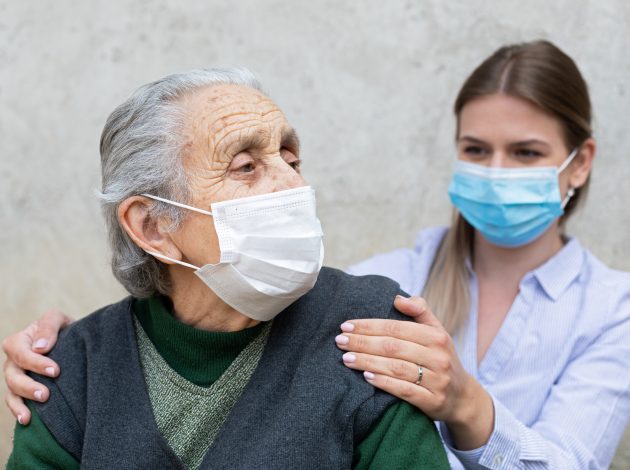Shining a light on what we know about adult social care

It was only ten years ago today that the United Nations agreed there should be an “International Day of Older People”. While social care is not limited to older people, it is an issue of widespread relevance in an ageing population. Here Sophie John, ONS Head of Social Care Analysis, explains the work being done to identify and address gaps in data that could help inform our understanding of adult social care.
If ever a year has highlighted the need for understanding as much as possible about this complex sector of our society, 2020 has been such a year. To support COVID-19 analysis we released “Deaths involving COVID-19 in the care sector, England and Wales”. Following this we produced a new annual release reporting deaths of care home residents in England and Wales. These were timely and vital steps forward in understanding more about the characteristics of care residents, along with causes of death. We worked in collaboration with Care Quality Commission and Care Inspectorate Wales and have compared our death registration data against their death notification data. We continue to closely monitor deaths involving COVID-19 in the care sector and plan to publish further articles in relation to the pandemic over the coming months.
The complexity of the social care system, involving government, third sector and private sector along with a scarcity of funding has meant that social care has not been measured as closely as healthcare in terms of data analysis. This is problematic for researchers, academics and policy makers who require sufficient evidence upon which to make informed decisions. Earlier this year the Office for Statistics Regulation (OSR) published papers outlining gaps in evidence in social care across the four nations of the UK. Their research highlighted:
- a need for improved leadership, collaboration and improved accessibility of official social care statistics
- issues with comparability of adult social care across the four nations
- data gaps; not enough is known regarding the volume and value of privately funded provision of adult social care or the burden placed on unpaid carers.
This has informed the creation of a work programme at ONS to fill these gaps and improve cohesion of social care data across the UK.
To help improve the accessibility of official social care statistics we have produced our adult social care landscape. With this tool, users can find links to official social care statistics in one place by simply searching by theme, keyword or country. We update this with new publications on a monthly basis and are working to further improve the accessibility of the tool.
Our landscape tool presents UK wide statistics, however, the devolved nature of adult social care means that data from across the UK is not always directly comparable. We are engaging with stakeholders across the four nations, whilst working with the Government Statistical Service (GSS) Harmonisation team, to outline the impact that this has on data. This piece will sit on the landscape page to make it clear to users what data can and cannot be compared across England, Wales, Scotland and Northern Ireland. Engaging with stakeholders across the four nations we will work towards ensuring that where possible analysis is joined up and well informed by experts to help make statistics more comparable, consistent and coherent.
We are working to identify the gaps in evidence in adult social care data. With an ageing population it is in all our interests to have an insight and understanding of issues around availability and funding of care to improve knowledge of individual care journeys and outcomes.
There is currently no requirement for local authorities or care providers to collect statistics on individuals who self-fund the care they receive. This leaves a significant evidence gap in the understanding of how care is funded and the impact on the adult social care sector. A self-funder is (typically) an individual who uses their own finances to pay for care (in both residential or community settings), as opposed to receiving support from the local authority or another third party. We have begun to scope out a programme of work to see if it is possible to estimate the number of self-funders and predict future care needs to answer important policy questions.
Working in collaboration with the Centre for International Research on Care, Labour and Equalities we are acting in a supervisory capacity to two PhD students. Providing the students with access to our data assets, we will enable them to ask novel research questions and fill gaps in knowledge surrounding unpaid care. To improve coherence, we are also working the GSS Harmonisation team on the “unpaid care” question that will be included in the 2021 Census.
The ONS, working with partners across the sector, can play an important leadership and coordination role within adult social care statistics and this upcoming work will assist towards reaching the Office for Statistics Regulation’s vision for adult social care: “Adult social care statistics across the UK are coherent, harmonised, insightful and accessible and answer society’s important questions thus ensuring that decision-makers, policy officials and the public have the information they require”.

Sophie John, Health Analysis and Life Events, Public Policy Analysis at ONS